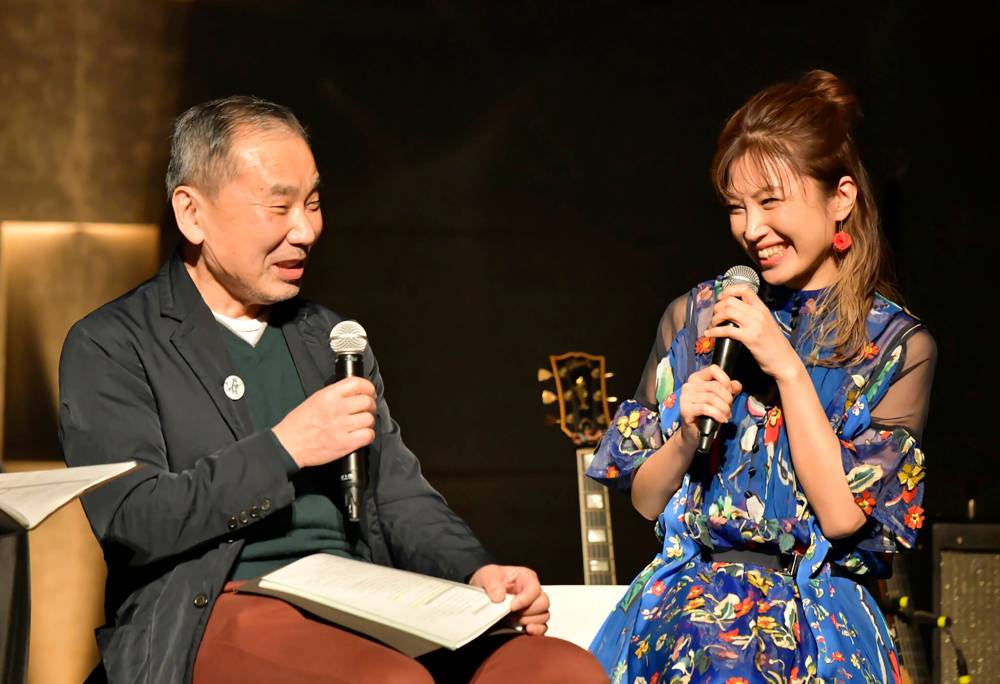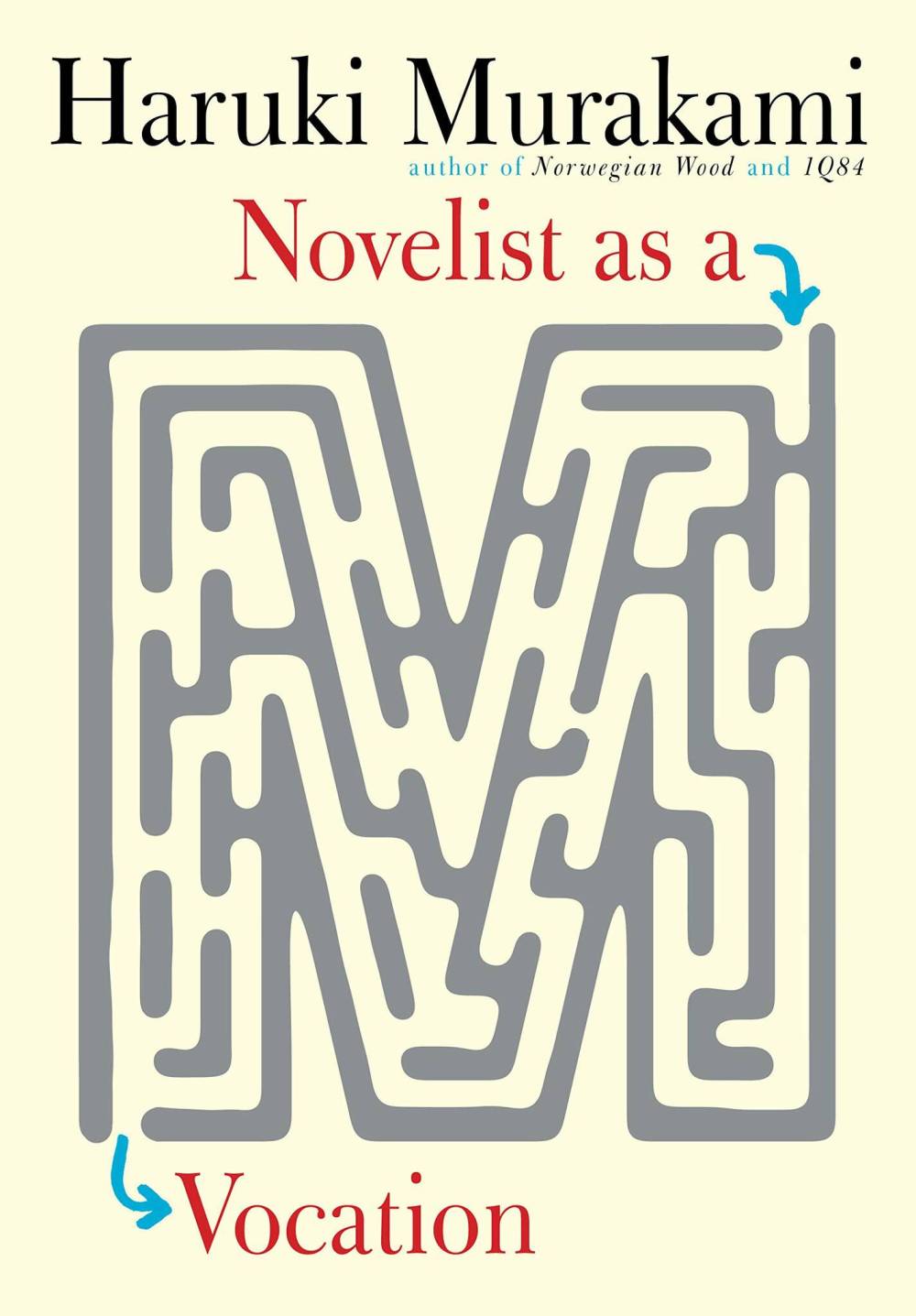It’s a wordy job…
Haruki Murakami’s insightful new non-fiction offers advice to aspiring novelists
Advertisement
Read this article for free:
or
Already have an account? Log in here »
To continue reading, please subscribe:
Monthly Digital Subscription
$0 for the first 4 weeks*
- Enjoy unlimited reading on winnipegfreepress.com
- Read the E-Edition, our digital replica newspaper
- Access News Break, our award-winning app
- Play interactive puzzles
*No charge for 4 weeks then price increases to the regular rate of $19.00 plus GST every four weeks. Offer available to new and qualified returning subscribers only. Cancel any time.
Monthly Digital Subscription
$4.75/week*
- Enjoy unlimited reading on winnipegfreepress.com
- Read the E-Edition, our digital replica newspaper
- Access News Break, our award-winning app
- Play interactive puzzles
*Billed as $19 plus GST every four weeks. Cancel any time.
To continue reading, please subscribe:
Add Free Press access to your Brandon Sun subscription for only an additional
$1 for the first 4 weeks*
*Your next subscription payment will increase by $1.00 and you will be charged $16.99 plus GST for four weeks. After four weeks, your payment will increase to $23.99 plus GST every four weeks.
Read unlimited articles for free today:
or
Already have an account? Log in here »
Hey there, time traveller!
This article was published 07/01/2023 (1067 days ago), so information in it may no longer be current.
Japan’s Haruki Murakami, who turns 74 on January 12, is one of the world’s most popular fiction writers and also one of the most private. His novels, such as Norwegian Wood and IQ84, have been translated into 50 languages and sold in the millions, but he has made it a point of not appearing too often in public, even when he lived for a time in the United States.
His new book, Novelist as a Vocation, is a clear, unpretentious look at novel-writing — his views on what it takes to write a successful novel and continue to do so over many years.
Murakami tells little about his personal life. While he presents specifics on how he sustains his regular production of a variety of novels, he gives no direct quotations from his work to show exactly how he handled, say, a difficult plot twist. In his foreword, he states:

Tokyo FM / The Associated Press files
Haruki Murakami (left, seen here in 2021 with guitarist Kaori Muraji).
“Truthfully, I have no idea if this book could serve as a guidebook or introduction to those hoping to write novels… For me, this is the only way I can write, so that’s how I do it… If it does turn out to be even a little useful in a practical way, I would be very pleased.”
Perhaps his most basic advice to a would-be novelist is: “[Read] as many novels as you can while you are still young. Everything you can get your hands on — great novels, not-so-great novels, crappy novels, it doesn’t matter (at all!) as long as you keep reading. Absorb as many stories as you physically can. Introduce yourself to lots of great writing. To lots of mediocre writing, too. This is your most important task.”
Murakami read a great number of books when he was young. He found school boring, but it did get him reading, and in high school he even began to read books written in English. He did not go to university, married young and opened a jazz café. He loved the café, especially the music, but he didn’t make a lot of money.
At age 29, he was at a baseball game in Tokyo and he was suddenly struck by an epiphany: “I think I can write a novel.” After the game, he went directly to a store, bought a sheaf of writing paper and “splurged on a Sailor fountain pen for two thousand yen.” He hand-wrote at his kitchen table every night after work, at the rate of 10 pages a night, and he loved the sensation. Murakami goes on to explain how he read the first draft over, saw flaws, and re-wrote what turned out to be a short novel called Hear the Wind Sing. It won a prize; he continued writing and became more enthusiastic than ever.
“There is no basic change today,” he writes. “I feel the same pleasure and excitement I felt when I wrote my first novel.”
The true novelist, he says, works hard and writes alone, continuing to produce work regularly after one or more successes. A writer needs a goal at all times, such as wanting to have short stories published in the New Yorker. Murakami’s work has appeared there often, and that has “really helped me develop a readership in the U.S.”

Novelist as a Vocation
A part of Murakami’s regimen has been to run every day for an hour; he details his experiences running in one of his other non-fiction books, What I Talk About When I Talk About Running.
Novelist as a Vocation was originally published in Japanese in 2015. The 2022 English translation (by longtime Murakami translators Philip Gabriel and Ted Goossen) contains a few too many clichés (“when all is said and done,” “settle in for the long haul,” “I stuck to my guns,” “burning bridges behind me”) and the odd dangler (“At the risk of sounding arrogant, things turned out the way they did…”), but it does capture Murakami’s straightforward style, his good advice and his humble attitude to his success.
Dave Williamson is a Winnipeg author whose latest short story, Reading on an Airplane, appears in the fall 2022 issue of Prairie Fire magazine.

